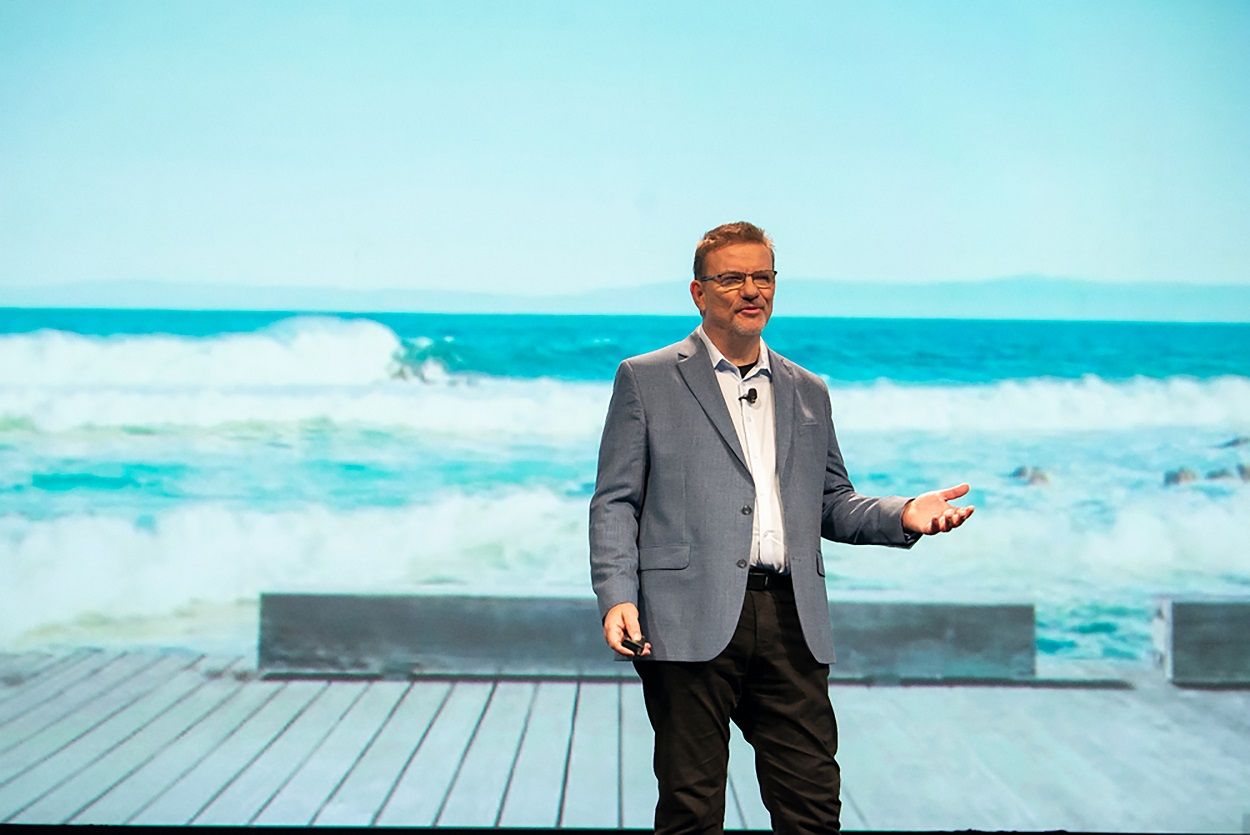The increase in global commerce over the last century is certainly a positive development, however, it has also brought challenges of its own. Operational and fiscal matters aside for one moment, the urgency of the climate change topic has thrust ethical and environmental questions to the forefront of both corporate and social agendas.
We heard from a variety of logistics, retail and supply chain leaders about some of the ways their organisations are confronting the question of climate change and the key roles their corporations are playing in creating more sustainable platforms for global commerce.
Sustainable digital journey
DHL Group’s CEO, Dr. Frank Appel, is a well-known and keen advocate for building sustainability into logistics processes. He commented in a previous blog post: “There is no way around sustainable logistics in the future. We are deciding today what kind of world we and our children will live in 30 years from now. And our aspiration is to make a substantial contribution to ensure that this will be an even better world.”
Dr. Markus Voss, CIO and COO of supply chain at DHL Group echoed Appel’s comments at Manhattan Momentum in May, highlighting the carbon cost of logistics and the need for collaboration to solve the climate crisis through the digitalisation of supply chains, the use of new green tech and the proliferation of sustainable energy sources.
“We will be carbon neutral in all our warehouses by 2025 and I am forecasting that I will have to double the size of my IT organisation by 2030 as we aim to achieve our goal of a fully digitised supply chain. Logistics is responsible for 25% of carbon emissions, so investing in sustainable fuels and electric planes is as much of a must today, as shipping ‘air’ is a crime. We need partners that are committed to the same sustainable, digital journey we are on, just like Manhattan,” Voss finished. DHL is aggressively pursuing sustainable targets and has committed to a zero-emissions target by 2050. It is investing in sustainable aviation fuels as part of an important step in its decarbonisation journey, both in terms of its clean operations commitment, but also in reducing the emissions footprint of transported goods for its customers. The logistics giant has also committed to electrifying 60% of its last mile delivery vehicles by 2030 and supports the development and market availability of hydrogen and electric trucks.
“We will be carbon neutral in all our warehouses by 2025.”
Markus Voss, Global CIO/COO of Supply Chain, DHL Group
Rewear, recirculate, repeat
Gen Z retailer PacSun continued the sustainability theme from the May conference with Co-CEO Michael Relich. There are 36 billion clothing items thrown away each year in the US alone, 95% of which could be reused or recycled. Thanks to PacSun’s commitment to sustainability and its collaborative partnership with ThredUp, consumers can ‘Rewear. Recirculate. Repeat.’ PacSun goods.
“When you trade in a pair of old PacSun jeans we’ll give you discount towards a new pair. By giving clothing a second life, it reduces the environmental impact by as much as 82% and by returning one clothing item back into the circular economy extends its life by an average of 2.2 years. Extending the life of clothes helps fight fashion waste and shopping secondhand displaces the need for new clothing production, diverting items from landfill,” Relich added.

“By giving clothing a second life, it reduces the environmental impact by as much as 82%.”
Michael Relich, Co-CEO, PacSun
An environmentally conscious future
Manhattan CEO Eddie Capel advocated the potential ‘green gains’ supply chains can affect during the UN Climate Change Conference in Glasgow last year and Senior Vice President of Product Mana, Brian Kinsella, added his opinions on sustainability from a product perspective.
“Being able to add to and cancel orders up to the moment truck doors are sealed, Manhattan’s customers can eliminate excessive delivery miles and reduce carbon emissions and waste associated with traditional returns processes. Our goal is to reduce returns by giving customers full control of their order until the very last moment before it’s put in a van,” Kinsella ended.
Climate change and sustainability are topics that should concern everyone, from governments and multinational organisations, right down to every one of us on an individual level. Often the weight of these types of global issues can feel like a crushing inevitability. However, we must remain positive and hopeful that with the type of collaborative actions and initiatives shown by the likes of DHL and PacSun, we can build a more environmentally conscious, sustainable future for those generations to follow.

Reacties 0